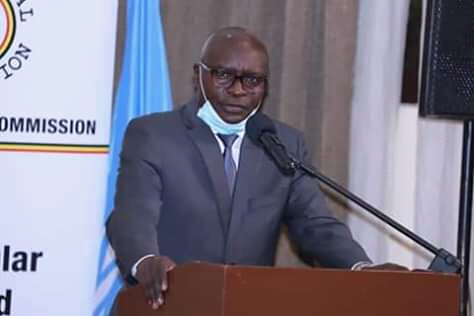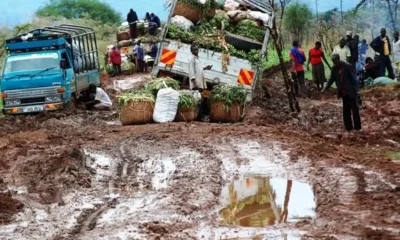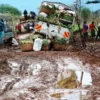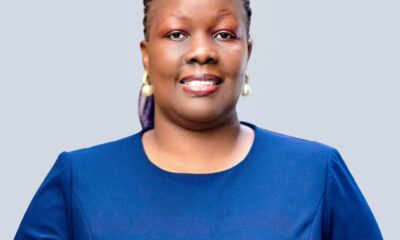Opinions
Party structures are key to electoral performance

Electrol Commisssion Justice Simon Mugenyi Byabakama
More often than not, in politics, a party with the most deeply rooted structures enjoys the best chances to win an election. This is the fact not only in Uganda’s case but also the world over.
But rather miraculously, a party with less or weaker structures can deploy other stringent measures to penetrate and weaken the impact of the expansively structured party. For example, the Party with isolated, scattered or weak structures could strategically ride on the glaring mistakes of the Party in power, despite its structural assertiveness to win the election.
The Party with weak structures can also design a uniquely pro-people, constructive and acceptable manifesto.
It is usually the ruling Party that is associated with a series of grave mistakes, having under delivered on a number of pledges.
Forming party structures across the entire country is the inevitable thing every Party would give top priority to. However this becomes hardly easy as it requires colossal sums of financial resources that are in most cases not available.
Therefore, it is never a surprise that the ruling parties especially across Africa are the ones that normally afford to foot these costs. Other parties that tend to manage spreading their wings all over, are those that receive funding from state coffers and foreign donations.
Structures take shape from bottom to top. The grassroot branches are vital because the primary support of the party originates there. The party requires bottom leaders to mobilize the common person down there. The deeper and further the party moves downwards, the thicker and more competitive it becomes.
From the villages, parishes, sub counties, districts and regions, the party gets representation that ultimately feeds into the national structures.
This kind of systematic arrangement aggressively affects the party’s performance at all levels before, during and after elections.
The party would also require similar representation of the special interest groups such as the youth, women, elderly and disabled at all levels. These special groups are necessary because they may not be competent enough to favourably compete with the former.
During election time, the contesting party derives its poll agents from the mentioned structures. Without them, the party may fail to avail and allocate agents in many electoral areas which puts it at a glaring disadvantage.
In Uganda, NRM is the most extensively structured Party and this is significantly because they control the national resources. FDC, DP, UPC and JEEMA are the opposition political parties favoured by law to receive state funds because they have representation in Parliament.
This law that sidelines and deprives parties outside Parliament from access to Public funds depicts the level of selfishness and discrimination by our legislators.
Although this scenario is too rare and unpopular among our East African counterparts, Africa and beyond, it was swiftly adopted in Uganda.
The above mentioned political parties have always manifested solidarity with the ruling party when it comes to issues that selfishly benefit them. They connive and marginalize others.
When it comes to the increment of the members’ emoluments – salary and allowances, there has always been no division, they dine together like members of one family. I can’t mention all the cases but the list is long, Ugandans know.
Political parties are a public good. Whether in Parliament or not, they all face common challenges in their day-to day activities. They have to rent offices, procure furniture and gadgets like computers in those offices, pay staff salaries name it.
So, what was the rationale of locking out the rest of the twenty other parties? Was it done in good faith?
In spite of all this marginalization, young parties exist, although rather clandestinely, in several districts of this country. They mobilize and engage the masses to participate in positive government programmes such as immunization, universal education, environmental conservation, nutrition and others.
The government of Uganda embraces the principle of affirmative action. It is a positive policy which should not be applied selectively. It should also apply to all political parties since they are a public good.
They prepare and nurture leaders for this country. In any participatory democracy, no party should be discriminated against.
Although the primary school far deep in Karamoja is not on the same footing as Buddo Junior, or Kitante Primary, Government equally facilitates them.
Kumi or Kabale Universities are not on same footing as Makerere University, Government funds them all, examples are many.
Five Political Parties in Parliament have been sharing a whopping 11 billion annually, and the President recently increased that money to 36 billion. The other Parties share nil.
In politics, no one is tall enough to see the future. The weakest and vulnerable of today, might be the strongest of tomorrow. How will you want to be treated when the situation changes?
Ssentongo Muzafalu
Member, Green Party/National Consultative Forum – NCF
Secretary, NCF Media Committee
Comments


















